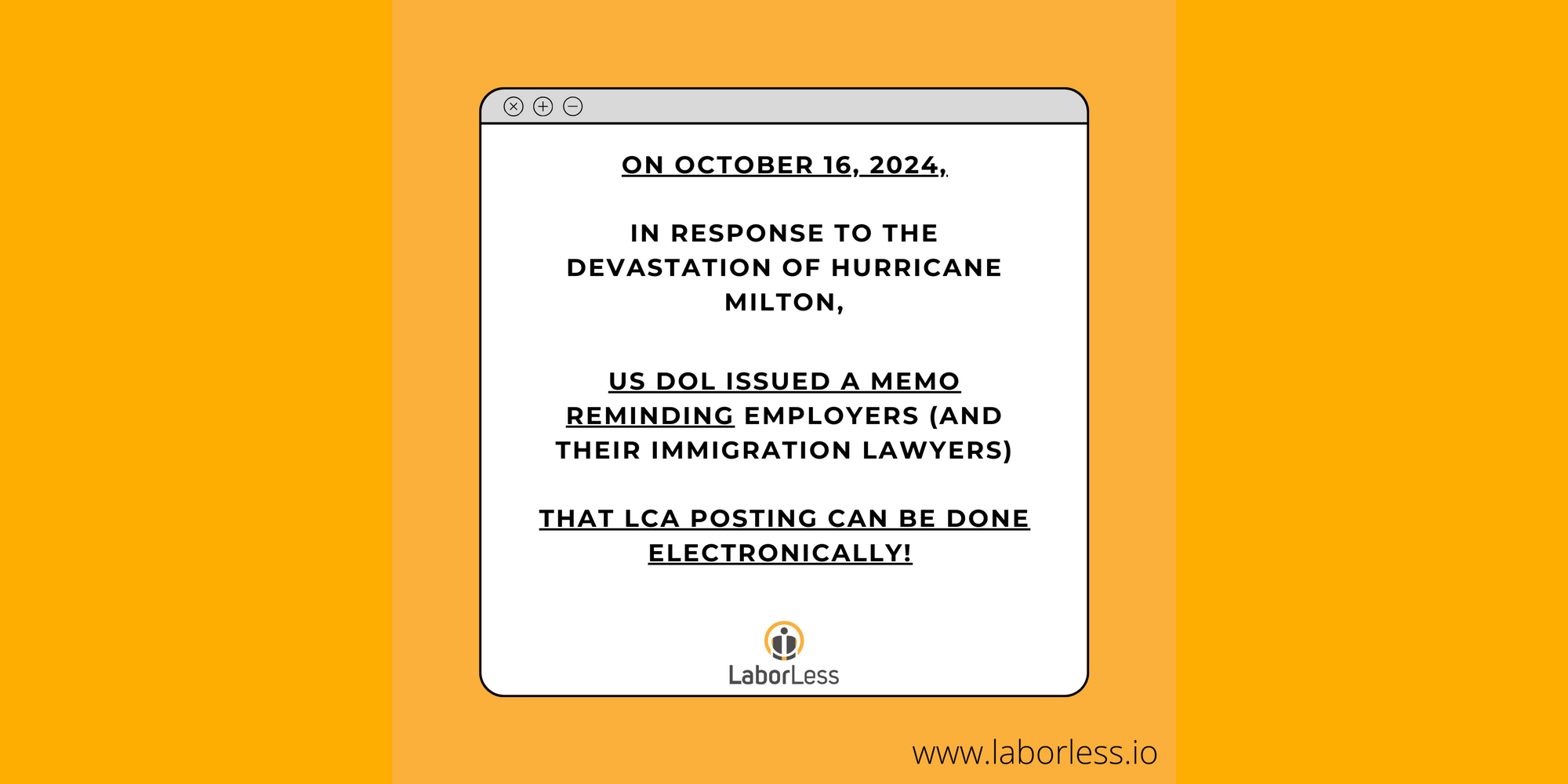The upcoming Trump administration is expected to bring renewed challenges to immigration compliance, particularly for companies that rely on H-1B visa workers. During Trump’s first term, immigration policies were significantly tightened, resulting in increased scrutiny of visa programs like H-1B. Companies that weren’t prepared for the stricter regulations faced audits, delays, and even legal penalties.
As we look ahead to 2025, companies and law firms must prepare for a potential resurgence of these challenges, including:
- Heightened Scrutiny of H-1B Employers: The Trump administration previously targeted staffing and consulting firms, especially those placing H-1B workers at third-party worksites. Policies aimed to ensure that these workers were employed in compliance with U.S. Department of Labor (DOL) regulations.
- Increased Worksite Visits: The USCIS Worksite Visit Program became a key enforcement mechanism during Trump’s first term, with site inspections verifying that employers adhered to the terms of their Labor Condition Applications (LCAs).
- Emphasis on Wages: Policies sought to ensure that H-1B workers were paid fair wages, as outlined in the DOL’s H-1B program requirements.
If similar policies return, companies employing H-1B workers and immigration law firms managing visa processes must be proactive to avoid falling afoul of stricter regulations.
Why Compliance Will Be Critical in 2025
The H-1B program is already complex, with strict requirements for LCA postings, Public Access Files (PAFs), and wages. Under the Trump administration, the following challenges may intensify:
- Audits and Inspections: Employers may face a higher likelihood of audits, especially those operating in industries like IT, where H-1B workers are often employed at client sites.
- Policy Changes: While major reforms typically require congressional action, executive orders and regulatory changes could increase enforcement, add to administrative burdens, or alter the approval process.
- Penalties for Noncompliance: Failing to meet compliance requirements—such as not properly maintaining PAFs or posting LCAs—can result in penalties, including fines or revocation of H-1B petitions.
To mitigate these risks, companies and law firms need to take immediate action to ensure their processes are compliant and prepared for potential audits.
Steps to Prepare for H-1B Compliance in 2025
Audit Your Existing Processes
The first step is a comprehensive review of your current H-1B compliance procedures. Specifically, assess the following:
- Labor Condition Application (LCA) Postings: Are all LCAs properly posted, including for remote employees at third-party worksites? The DOL requires LCAs to be publicly accessible during the required posting period, as detailed in their H-1B compliance guidelines.
- Public Access Files (PAFs): Confirm that your PAFs are complete, accurate, and stored securely and for the required period of time, not longer. Missing or incomplete files are common compliance violations that can result in audits or penalties.
A thorough audit ensures that your current and past processes align with DOL requirements and that you’re prepared for increased scrutiny.
Automate LCA Compliance Going Forward
One of the biggest risks in compliance is relying on manual processes. Tasks like printing LCA postings, maintaining paper-based PAFs, and managing compliance through email chains leave room for human error and inefficiencies.
Automation is the solution. By using a technology platform to digitize and streamline your compliance processes, you can:
- Reduce the likelihood of human error.
- Save time for HR teams and immigration law firms.
- Ensure real-time compliance with DOL regulations.
LaborLess help employers and immigration law firms automate these processes, removing the manual burden and creating a seamless, compliant workflow.
Why LaborLess is the Right Solution for LCA Compliance Automation
At LaborLess, we quite literally specialize in automating LCA posting and PAF management, offering a streamlined solution for companies and law firms facing H-1B compliance challenges.
- For Employers: Better ensure your LCAs are posted and your PAFs are managed in compliance with DOL regulations, whether your employees work on-site or at third-party locations.
- For Immigration Law Firms: LaborLess makes it easy for you to manage compliance for your employer clients, something that they appreciate as you take the LCA and PAF process off their plate so they can focus on supporting their foreign national employees, especially during stressful times. And this isn't just for large immigration firms that support major H-1B filer - this goes for solo and small immigration firms that support startups and small companies that hire just few H-1B workers per year.
Our platform eliminates the inefficiencies and risks of manual processes, helping you stay prepared for any compliance clampdowns that may come with a new Trump administration.
Visit LaborLess.io to learn more about how we can help you streamline your LCA and PAF processes, reduce compliance risks, and prepare for what’s ahead.

